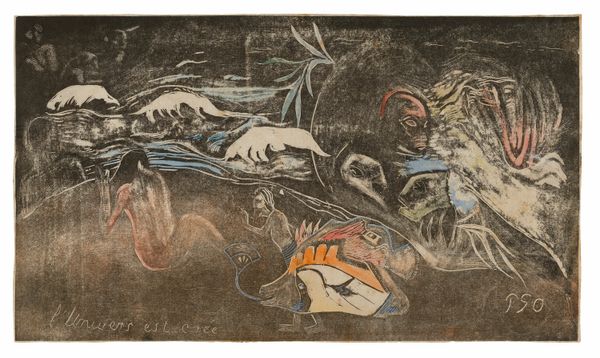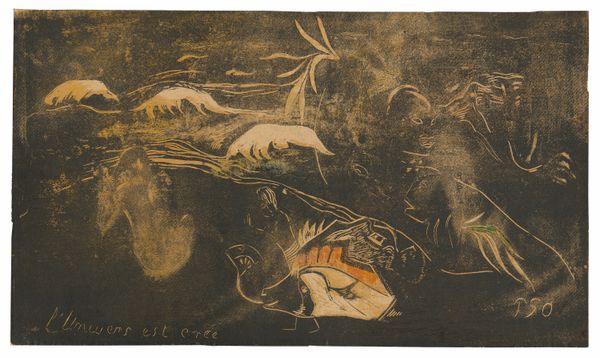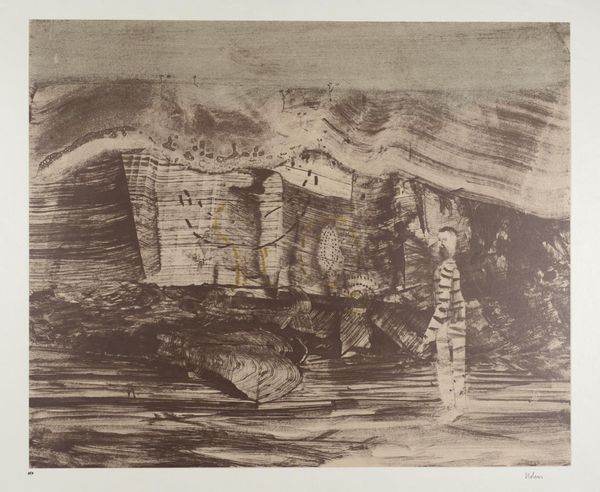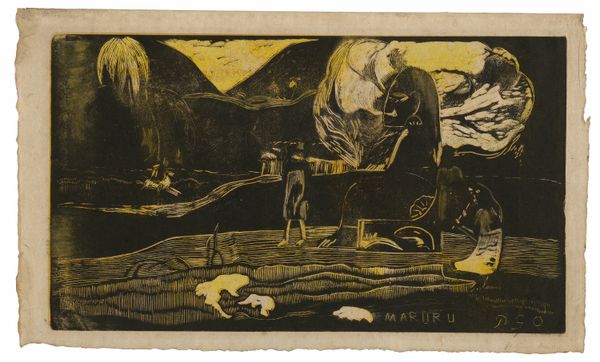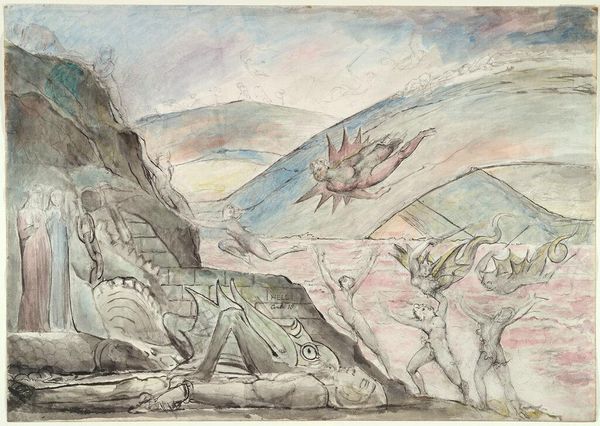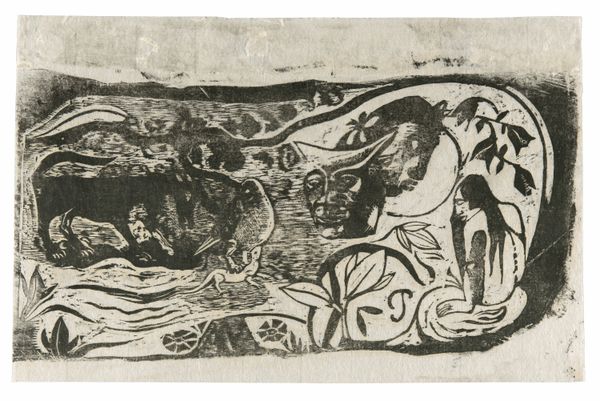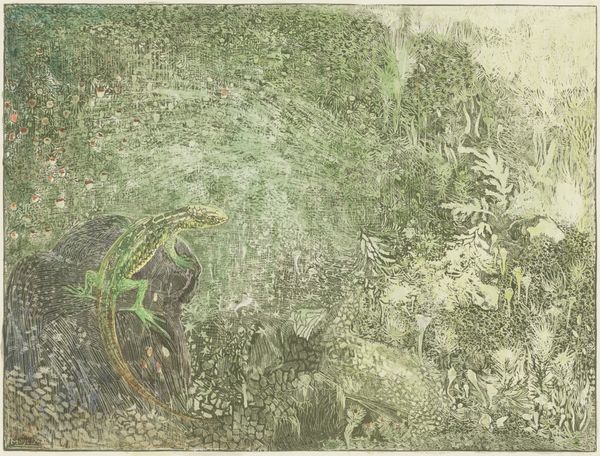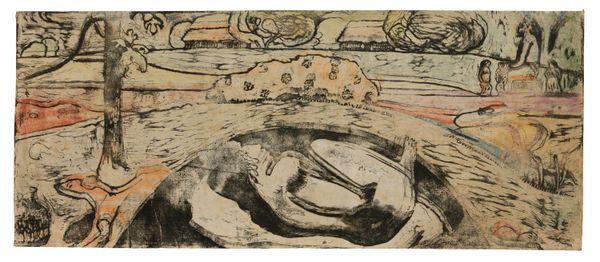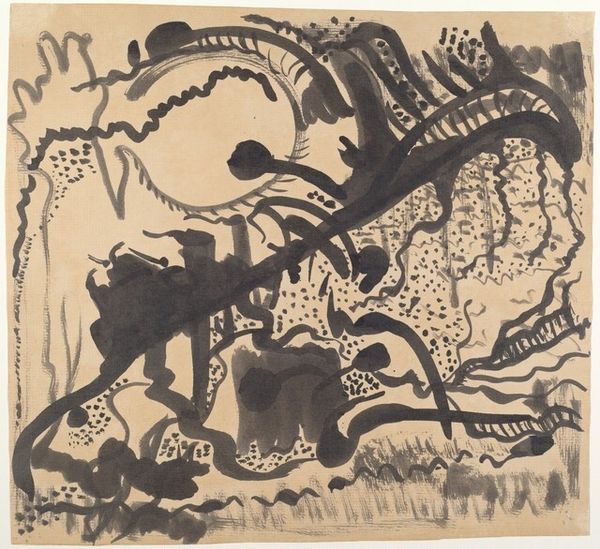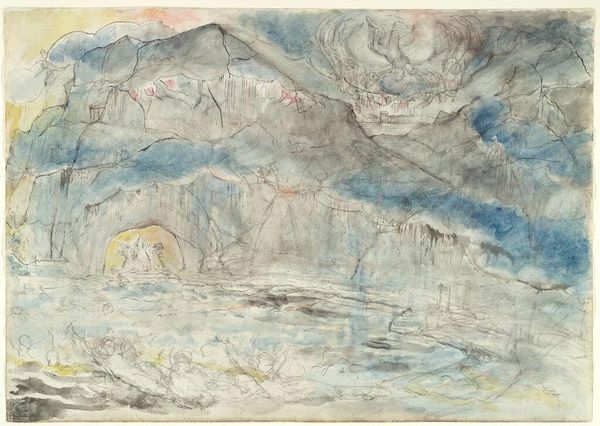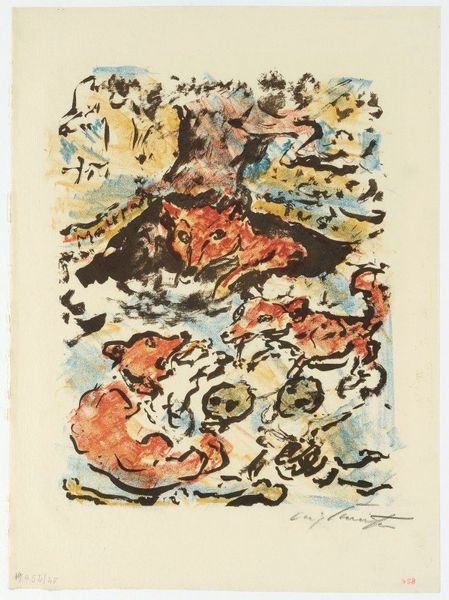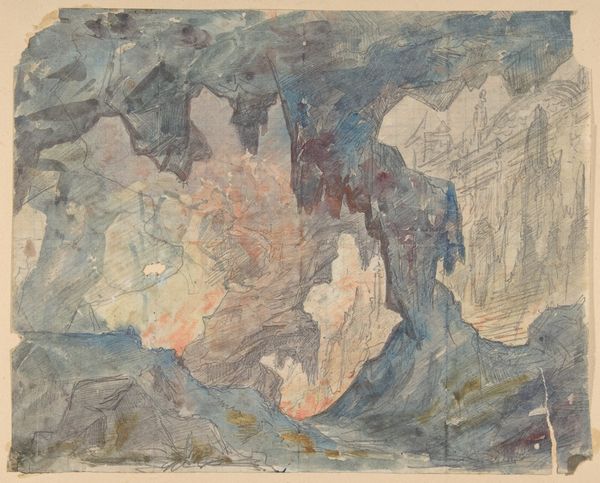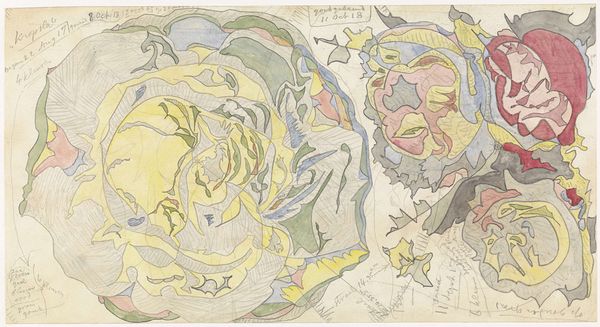
The Landing: H Hour minus 6. In the Distance Glow of the Lancasters Bombing Battery to be Attacked 1944
0:00
0:00
Dimensions: support: 540 x 737 mm
Copyright: CC-BY-NC-ND 4.0 DEED, Photo: Tate
Editor: This watercolor by Albert Richards is called "The Landing: H Hour minus 6." The chaotic scene and muted colors give a sense of foreboding. How do you interpret this work within its historical context? Curator: Richards, who tragically died young in the war, offers a visceral depiction of the D-Day landings. It confronts the sanitized narratives of heroism, revealing the lived experience of soldiers facing imminent danger and reflecting the psychological weight of war on the individual. Editor: So, it's a counter-narrative? Curator: Precisely. It challenges the dominant, often celebratory, war narratives by centering on the vulnerability and emotional turmoil of those involved, prompting us to consider whose stories are privileged and whose are marginalized. Editor: I hadn’t considered the counter-narrative aspect. It makes the piece so much more powerful. Curator: Understanding art as a form of social commentary helps us engage critically with history and its ongoing impact.
